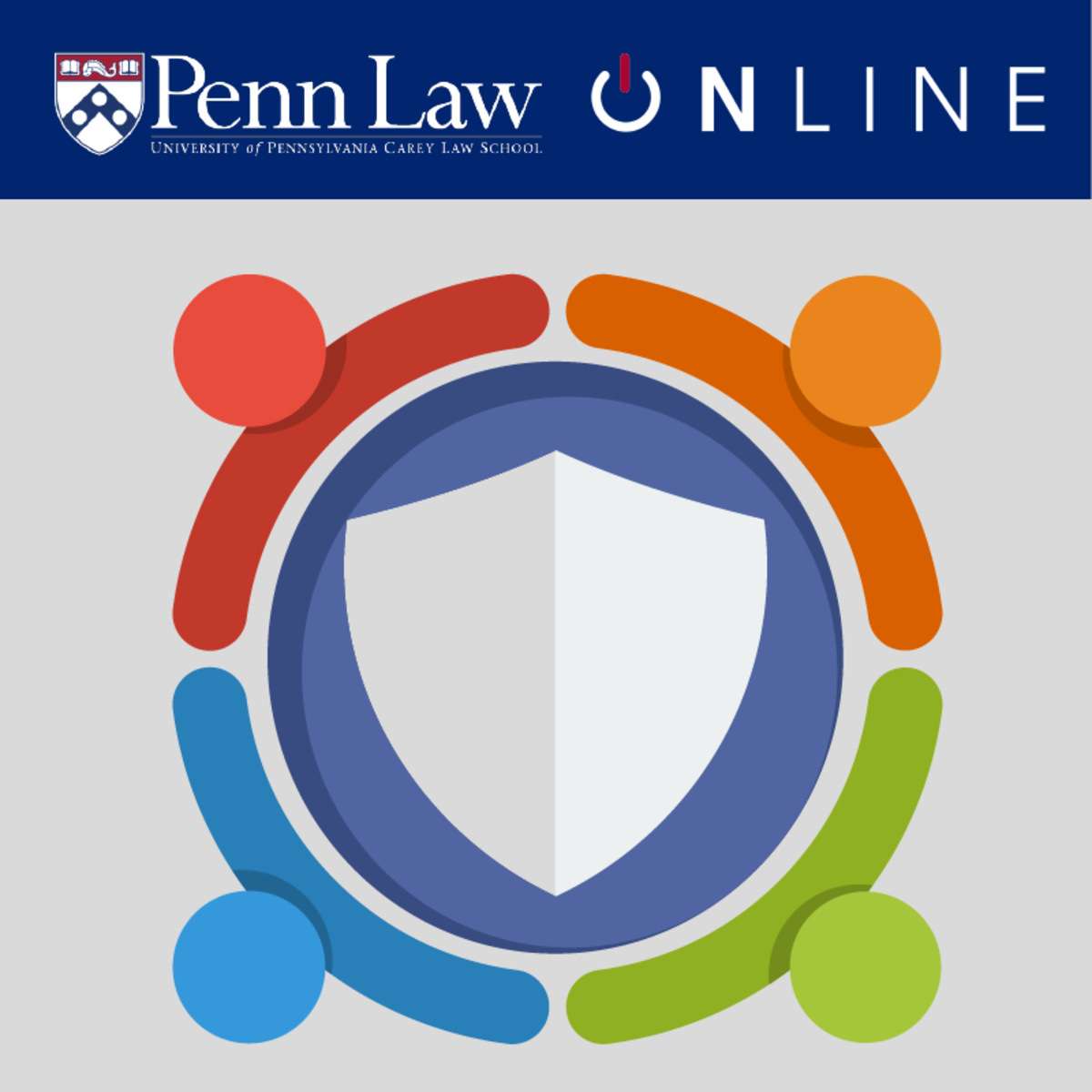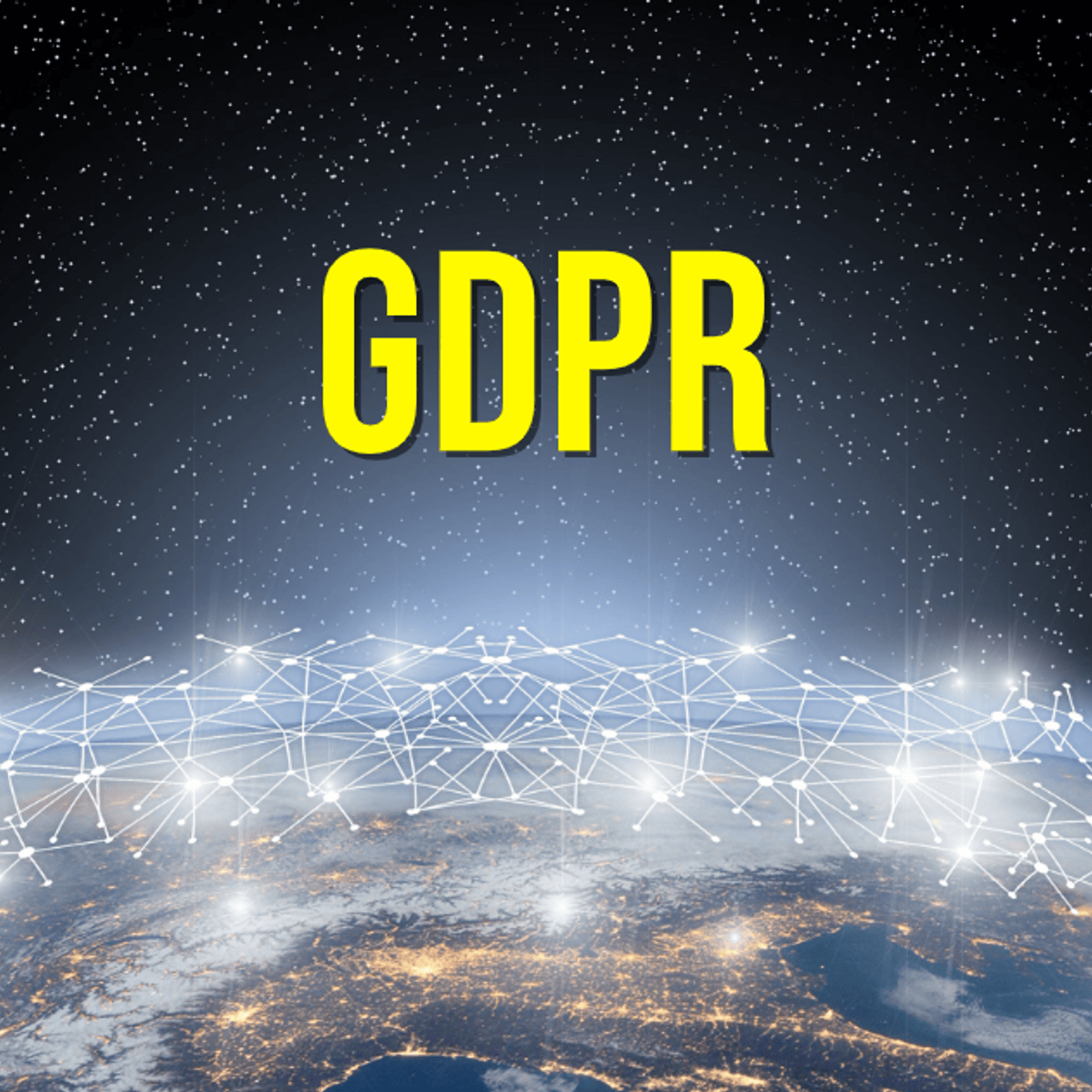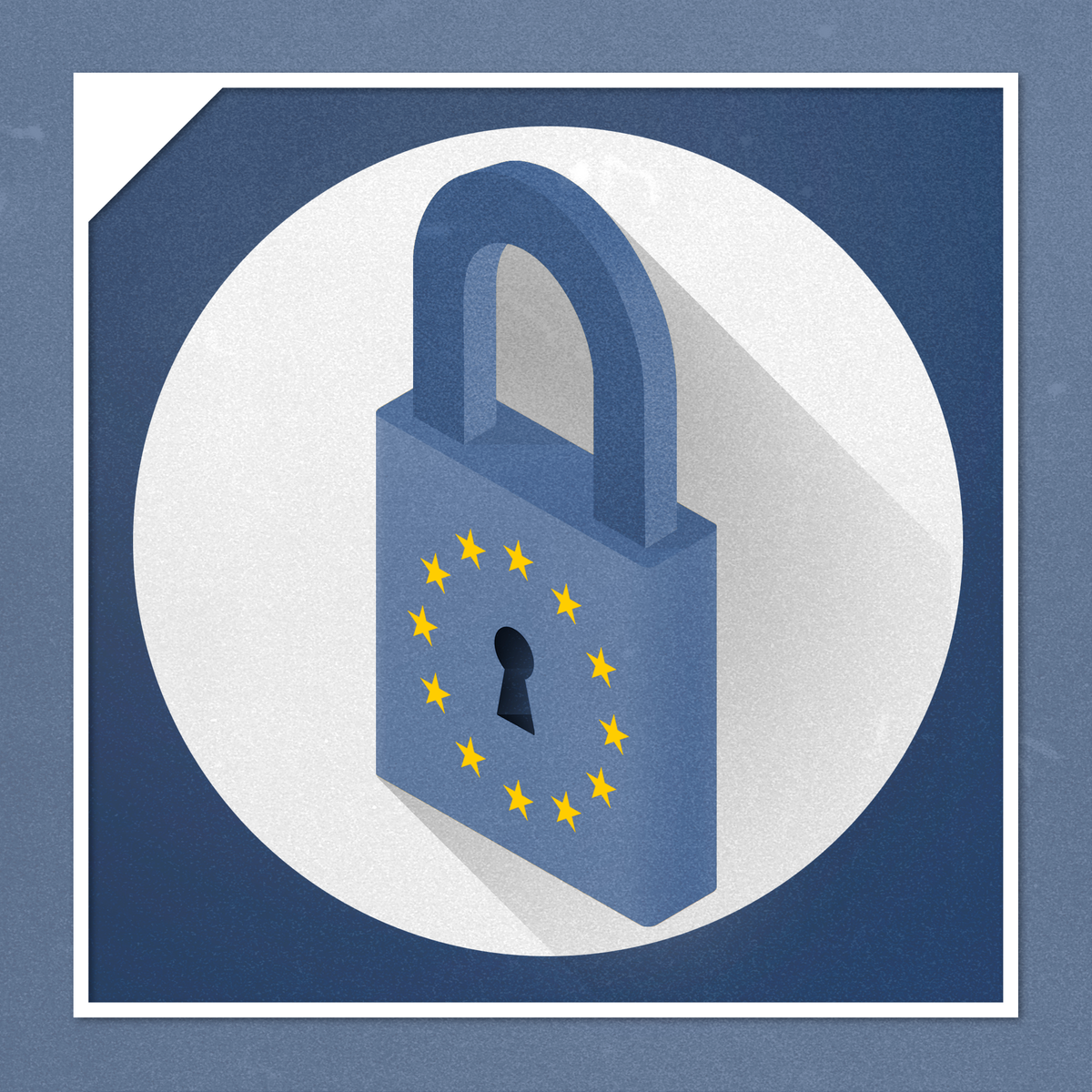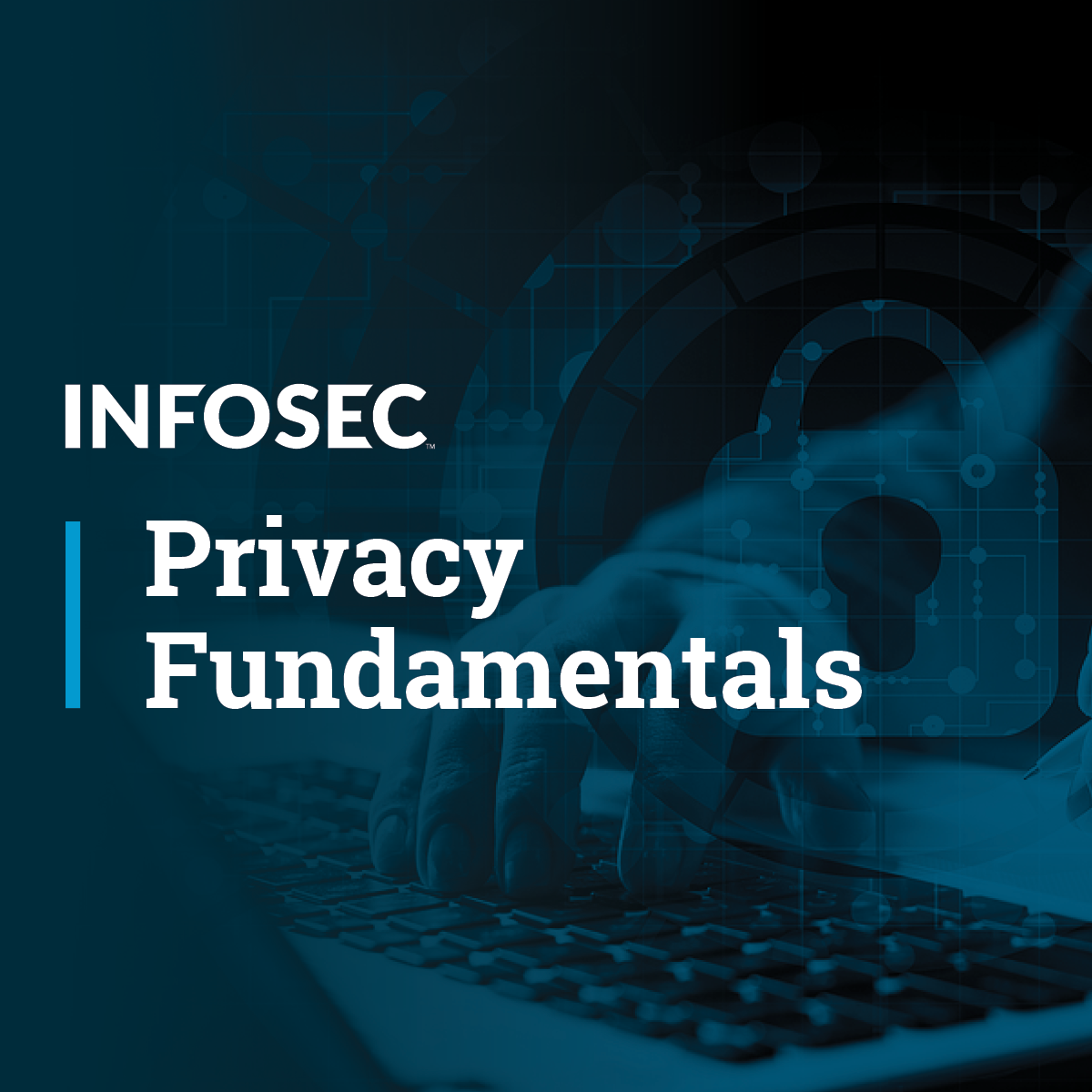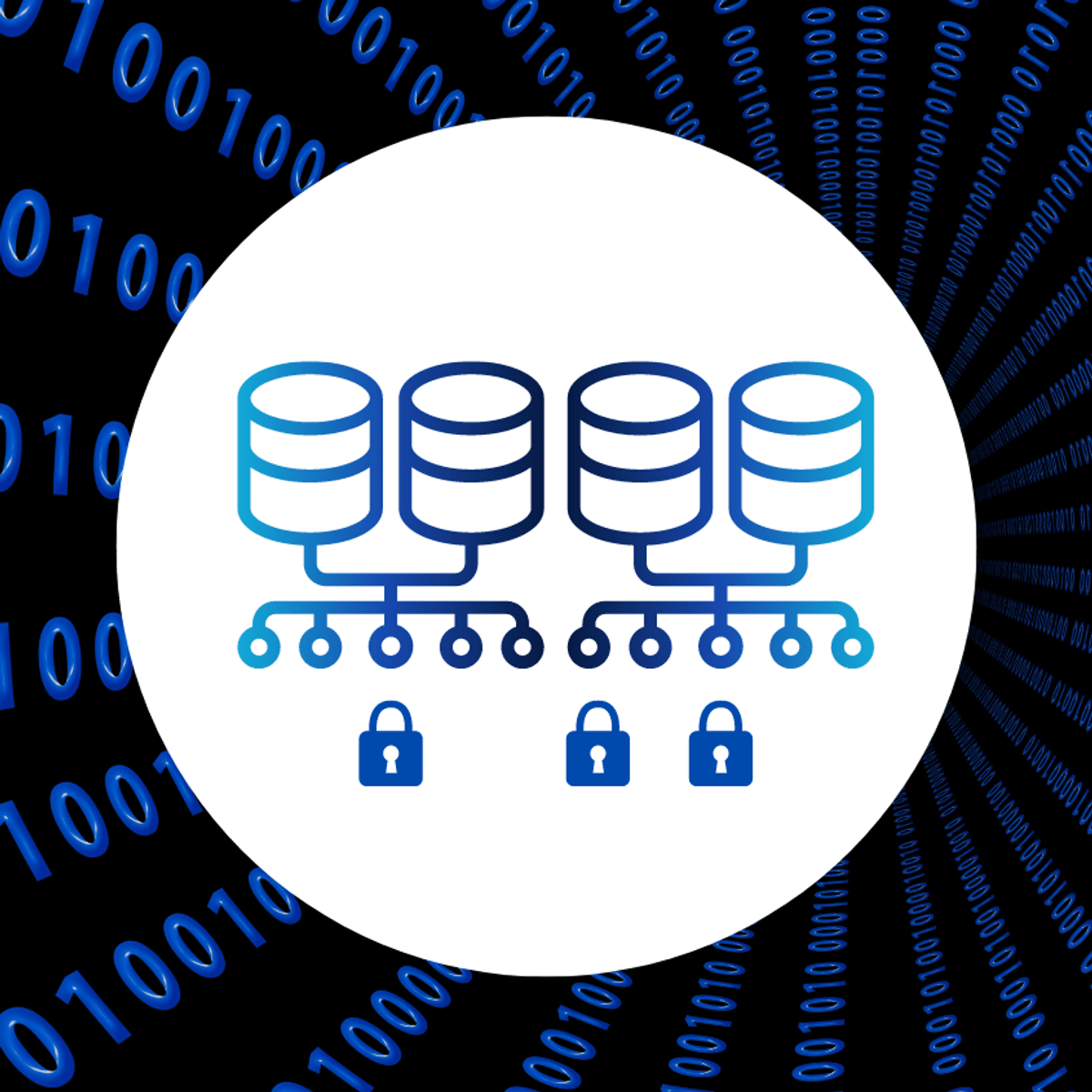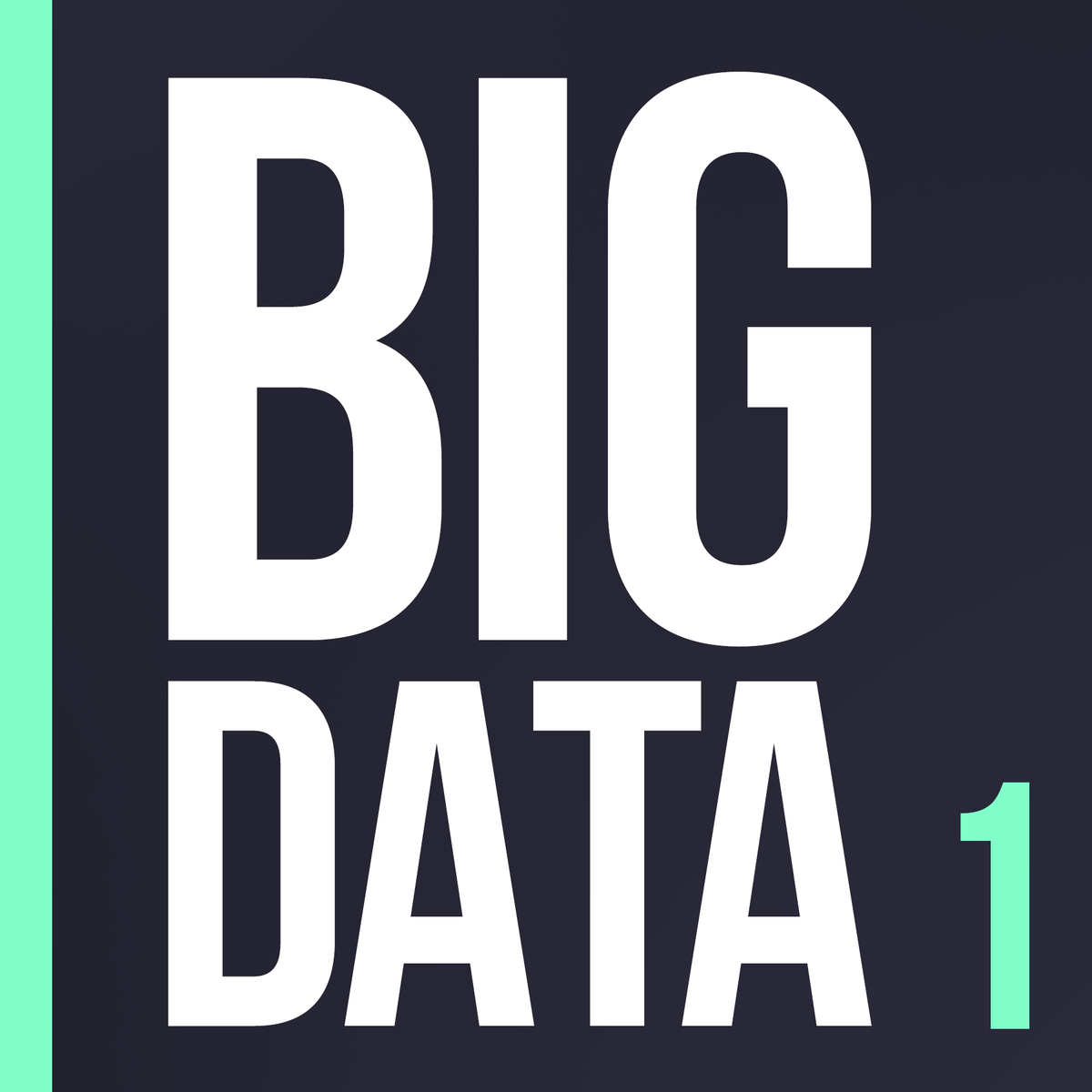Data Protection Officer
vigating the Digital Frontier: A Comprehensive Guide to the Role of the Data Protection Officer
A Data Protection Officer (DPO) is a cornerstone of modern data governance, an independent expert tasked with guiding organizations through the complex landscape of data privacy regulations. The DPO's primary function is to ensure that an organization processes personal data in compliance with all applicable laws, acting as a crucial link between the organization, data subjects (individuals whose data is processed), and supervisory authorities. This role has become increasingly vital as the digital world expands and the importance of safeguarding personal information takes center stage.
Working as a DPO can be both engaging and exciting. It offers the opportunity to operate at the intersection of law, technology, and ethics, tackling multifaceted challenges that have real-world impact. The DPO is instrumental in fostering a culture of data privacy within an organization, a critical endeavor in an era where data breaches and misuse are significant threats. Furthermore, the global nature of data flows and regulations means DPOs often engage with international standards and collaborate with diverse stakeholders.
For those new to the field, the path to becoming a DPO can seem intricate, but it is also a journey of continuous learning and significant professional growth. It requires a unique blend of legal acumen, technical understanding, and strong communication skills to navigate the responsibilities effectively. While the role demands a high level of expertise and responsibility, the increasing demand for qualified DPOs signals a robust and evolving career path.
Key Responsibilities of a Data Protection Officer
The responsibilities of a Data Protection Officer are multifaceted, demanding a proactive and comprehensive approach to data privacy. A DPO is not merely a compliance box-ticker; they are a strategic advisor and a guardian of personal data within an organization.
Compliance Monitoring and Risk Assessment
A core responsibility of a DPO is to monitor an organization's adherence to applicable data protection laws, such as the General Data Protection Regulation (GDPR) in Europe or the California Consumer Privacy Act (CCPA) in the United States. This involves regularly reviewing data processing activities, identifying potential areas of non-compliance, and recommending corrective actions. The DPO must stay abreast of changes in data protection laws and practices to ensure the organization's policies and procedures remain current and effective.
Risk assessment is another critical function. DPOs conduct Data Protection Impact Assessments (DPIAs) for high-risk processing activities to identify and mitigate potential privacy risks. This involves analyzing how personal data is collected, used, stored, and shared, and implementing measures to minimize the likelihood and impact of data breaches or other privacy violations. The DPO plays a crucial role in helping the organization understand and manage its data protection risks effectively.
To support these responsibilities, DPOs often leverage specialized privacy management software and tools that can help automate tasks like data mapping, inventory creation, and compliance tracking. These tools can streamline workflows and provide valuable insights, but they require careful implementation and ongoing human oversight to be truly effective.
For those looking to build a foundational understanding of data protection principles and compliance, several online courses offer comprehensive introductions. These courses can help aspiring DPOs grasp the core concepts that underpin compliance monitoring and risk assessment activities.
Data Breach Management Protocols
In the unfortunate event of a data breach, the DPO plays a pivotal role in managing the incident. This includes coordinating the organization's response, ensuring that breaches are documented, and notifying the relevant supervisory authorities and affected data subjects within the legally mandated timeframes. The DPO must be prepared to act swiftly and decisively to mitigate the impact of a breach and prevent future occurrences.
Developing and maintaining robust data breach management protocols is a key preventative measure. These protocols outline the steps to be taken in the event of a breach, including internal reporting procedures, investigation processes, and communication strategies. The DPO is responsible for ensuring these protocols are in place, regularly tested, and understood by relevant staff.
Effective data breach management also involves learning from incidents. After a breach has been contained and addressed, the DPO leads the process of analyzing the root causes and identifying areas where security measures or internal processes need improvement. This continuous improvement cycle is crucial for enhancing an organization's overall data protection posture.
Understanding the technical aspects of cybersecurity is beneficial for DPOs in this area. Online courses focusing on cybersecurity fundamentals and incident response can provide valuable knowledge.
Stakeholder Education and Training
A DPO is responsible for fostering a data protection culture within the organization. This involves educating employees about their data protection obligations and raising awareness of privacy best practices. Training programs developed or overseen by the DPO should cover topics such as how to handle personal data appropriately, recognize and report data breaches, and understand the rights of data subjects.
Effective training is not a one-time event but an ongoing process. The DPO should ensure that training materials are regularly updated to reflect changes in regulations and organizational practices. They may also implement tailored training for employees whose roles involve significant data processing activities.
Beyond formal training, the DPO acts as an advisor to various stakeholders within the organization, including management and different departments, on all matters relating to data protection. They provide guidance on how to embed data protection principles into new projects and initiatives, a concept often referred to as "privacy by design."
Courses that focus on the ethical use of data and the communication of complex information can be particularly helpful for DPOs in this aspect of their role.
Auditing and Reporting Obligations
Regular audits are essential to verify that an organization's data protection practices are effective and compliant with relevant regulations. The DPO is typically responsible for conducting or overseeing these internal audits. Audits involve examining data processing activities, reviewing documentation, and interviewing staff to assess compliance levels and identify any gaps.
Following an audit, the DPO will prepare reports for senior management, outlining the findings, any identified areas of non-compliance, and recommendations for improvement. These reports are crucial for demonstrating accountability and for driving necessary changes within the organization. The DPO also maintains records of all data processing activities, which is a requirement under regulations like the GDPR.
The DPO also serves as the primary point of contact for supervisory authorities, such as the Information Commissioner's Office (ICO) in the UK or other national data protection agencies. They cooperate with these authorities on investigations, respond to inquiries, and consult on matters related to data protection. This liaison role requires strong communication and a thorough understanding of the regulatory landscape.
For individuals interested in the intricacies of auditing and reporting in the context of data protection, specialized courses can provide in-depth knowledge. Books focusing on the practical implementation of GDPR can also be valuable resources.
Essential Skills and Competencies
Succeeding as a Data Protection Officer requires a diverse skill set that spans legal knowledge, technical understanding, communication finesse, and analytical prowess. It's a role that sits at the confluence of multiple disciplines, demanding a holistic approach to problem-solving and stakeholder engagement.
Legal Knowledge (e.g., GDPR, HIPAA)
A deep understanding of data protection laws and regulations is paramount for a DPO. This includes not only overarching frameworks like the GDPR in Europe but also sector-specific regulations such as HIPAA (Health Insurance Portability and Accountability Act) in the United States, and other relevant national or regional laws like the CCPA. The DPO must be able to interpret these complex legal texts and translate them into practical guidance for the organization.
This legal expertise isn't static; data protection law is an evolving field. DPOs must commit to continuous learning to stay updated on new legislation, amendments to existing laws, and relevant case law or guidance from supervisory authorities. Understanding the nuances of legal requirements for data collection, processing, storage, and transfer is crucial for ensuring compliance.
Many aspiring DPOs come from legal backgrounds, but even for those who don't, developing a strong grasp of these legal frameworks is essential. Online courses and specialized certifications can provide structured learning paths for acquiring and maintaining this critical knowledge. Familiarity with resources from bodies like the European Data Protection Board (EDPB), which issues guidelines on GDPR interpretation, is also invaluable.
OpenCourser offers a variety of courses focusing on specific data protection laws and general legal principles relevant to the DPO role. These resources can help build a strong foundation in this key competency.
These books provide in-depth explorations of key data protection laws and their practical implications.
Technical Proficiency (data security tools, encryption)
While a DPO doesn't typically need to be a deep-level cybersecurity expert, a solid understanding of IT and data security concepts is crucial. This includes familiarity with common data security tools, such as firewalls and data encryption programs, and an understanding of how they contribute to protecting sensitive information. Knowledge of concepts like data encryption, anonymization, and pseudonymization techniques helps the DPO assess the adequacy of technical safeguards.
The DPO needs to understand how data flows within the organization's systems, where personal data is stored, and how it is processed. This technical literacy enables them to have meaningful discussions with IT and security teams, understand technical risk assessments, and advise on privacy-enhancing technologies. As organizations increasingly adopt cloud computing and other advanced technologies, the DPO's technical understanding must also evolve.
For individuals looking to strengthen their technical proficiency, online courses in cybersecurity fundamentals, data security, and cloud security can be highly beneficial. Understanding the basics of how data is managed and protected from a technical standpoint empowers the DPO to fulfill their advisory and oversight roles more effectively.
Consider these courses to build your technical knowledge in areas relevant to data protection.
Communication and Stakeholder Management
Excellent communication skills are indispensable for a DPO. They must be able to explain complex legal and technical data protection concepts in clear, understandable terms to diverse audiences, from board members and senior management to employees with varying levels of technical expertise. This includes both written communication (e.g., drafting policies, reports) and verbal communication (e.g., delivering training, advising stakeholders).
Stakeholder management is another critical aspect. The DPO interacts with a wide range of internal and external stakeholders, including IT departments, legal teams, human resources, marketing, data subjects, and regulatory authorities. Building effective working relationships, navigating differing priorities, and fostering a collaborative approach to data protection are key to the DPO's success. The ability to influence and persuade without direct authority is often necessary.
The DPO must also be adept at handling queries and complaints from data subjects regarding their privacy rights. This requires empathy, patience, and the ability to provide clear and helpful responses. Strong interpersonal skills help in building trust and demonstrating the organization's commitment to data protection.
For those aiming to enhance their communication and stakeholder management abilities, courses focusing on business communication, negotiation, and leadership can provide valuable frameworks and techniques. OpenCourser offers a range of options within its Communication Studies and Professional Development categories.
Analytical and Problem-Solving Skills
The role of a DPO inherently involves analyzing complex situations, identifying potential problems, and developing effective solutions. Whether it's assessing the privacy implications of a new technology, investigating a potential data breach, or interpreting a nuanced legal requirement, strong analytical skills are essential. The DPO must be able to think critically, evaluate risks, and make sound judgments.
Problem-solving in the context of data protection often requires creativity and a pragmatic approach. The DPO needs to find solutions that not only ensure compliance but are also workable within the organization's operational realities. This might involve balancing competing interests, such as business objectives and stringent privacy mandates, and finding ways to achieve both.
DPOs often deal with large amounts of information and need to be able to distill key insights and identify patterns. For instance, when conducting a DPIA, they must analyze various data points to understand potential risks and their likelihood. This analytical rigor ensures that their advice and recommendations are well-founded and actionable.
Developing these skills can come from a variety of experiences and educational paths. Courses in critical thinking, risk management, and even data analysis can contribute to a DPO's analytical toolkit. Many of the challenges a DPO faces require a methodical and evidence-based approach to problem-solving.
Legal and Regulatory Frameworks
A Data Protection Officer operates within a dynamic and intricate web of legal and regulatory frameworks. Understanding these rules is not just a foundational requirement but an ongoing responsibility, as laws evolve in response to technological advancements and societal expectations regarding privacy.
Overview of GDPR and Other Global Regulations
The General Data Protection Regulation (GDPR) enacted by the European Union is arguably the most comprehensive and influential data protection law globally. It has set a high benchmark for how organizations must handle the personal data of EU residents, irrespective of where the organization itself is based. Key GDPR principles include lawfulness, fairness and transparency; purpose limitation; data minimization; accuracy; storage limitation; integrity and confidentiality (security); and accountability. It also grants individuals significant rights over their personal data, such as the right to access, rectify, and erase their information.
Beyond the GDPR, numerous other countries and regions have implemented their own data protection laws. The California Consumer Privacy Act (CCPA), and its successor the California Privacy Rights Act (CPRA), provide robust privacy protections for California residents. Other notable regulations include Canada's Personal Information Protection and Electronic Documents Act (PIPEDA), Brazil's Lei Geral de Proteção de Dados (LGPD), South Africa's Protection of Personal Information Act (POPI), and various laws across Asia, such as China's Personal Information Protection Law (PIPL) and India's Digital Personal Data Protection Act. DPOs in multinational organizations must navigate this complex patchwork of regulations.
Understanding the specific requirements of each applicable regulation is crucial. This includes knowing the definitions of personal data, the rules for obtaining consent, obligations for data security, and procedures for handling data subject requests. Resources such as The International Association of Privacy Professionals (IAPP) provide valuable information and updates on global privacy laws.
For a comprehensive understanding of these varied legal landscapes, targeted online courses can be invaluable.
These books offer detailed guidance on navigating specific and general data protection regulations.
Role of DPOs in Cross-Border Data Transfers
In our interconnected world, personal data frequently flows across international borders. Data protection laws often impose strict conditions on such transfers to ensure that data remains adequately protected when it leaves its original jurisdiction. The DPO plays a vital role in advising the organization on how to conduct these transfers lawfully.
This involves understanding the legal mechanisms that can be used to legitimize cross-border data transfers, such as adequacy decisions (where a country is deemed to provide an equivalent level of data protection), Standard Contractual Clauses (SCCs), Binding Corporate Rules (BCRs), and, in some cases, explicit consent from the data subject. The DPO must assess the risks associated with transferring data to different countries and ensure that appropriate safeguards are in place.
The legal landscape for international data transfers is particularly dynamic, with court rulings and regulatory guidance frequently shaping the requirements. For example, the Schrems II judgment by the Court of Justice of the European Union had significant implications for data transfers between the EU and the US. DPOs must stay informed about these developments to ensure ongoing compliance.
Courses focusing on international data protection law and the specific mechanisms for cross-border transfers can equip DPOs with the necessary knowledge to navigate this complex area. Understanding tools and frameworks like the EU-US Data Privacy Framework is essential.
Penalties for Non-Compliance
Failure to comply with data protection regulations can result in significant penalties for organizations. These can include substantial fines, reputational damage, loss of customer trust, and even legal action. The GDPR, for instance, allows for fines of up to €20 million or 4% of an organization's global annual turnover, whichever is higher, for serious infringements. Other regulations around the world also have provisions for hefty financial penalties.
The DPO's role is crucial in helping organizations avoid such penalties by promoting a culture of compliance and ensuring that appropriate data protection measures are implemented. By monitoring compliance, conducting risk assessments, and advising on best practices, the DPO helps to minimize the risk of infringements.
Beyond financial penalties, non-compliance can lead to other negative consequences. Supervisory authorities can impose corrective measures, such as orders to cease processing data or to bring processing operations into compliance. Data subjects also have the right to seek compensation for damages suffered as a result of unlawful data processing. Understanding the potential repercussions of non-compliance underscores the importance of the DPO's function.
While no course can guarantee avoidance of penalties, understanding the gravity of non-compliance is a key motivator for robust data protection programs. Materials that detail the enforcement actions of various data protection authorities can provide valuable lessons.
Emerging Legislation (e.g., AI Governance)
The field of data protection is constantly evolving, with new technologies and societal trends prompting the development of new legislation. A significant area of emerging regulation is AI governance. As artificial intelligence systems become more sophisticated and widely used, concerns about their impact on privacy, fairness, and transparency are growing.
Legislators globally are beginning to address these concerns. The European Union's AI Act, for example, aims to establish a framework for regulating AI systems based on their level of risk. This and similar emerging laws will have significant implications for how organizations develop, deploy, and use AI, particularly when personal data is involved. DPOs will need to understand these new legal requirements and advise their organizations on how to comply.
The intersection of AI and data protection presents unique challenges. Issues such as algorithmic bias, the use of personal data for training AI models, and the transparency of AI decision-making processes all require careful consideration from a privacy perspective. DPOs will play a key role in navigating these complexities and ensuring that AI is used responsibly and ethically. Organizations like the National Institute of Standards and Technology (NIST) in the U.S. are also developing AI risk management frameworks that can inform governance practices.
Staying ahead of emerging legislation requires a commitment to ongoing learning and engagement with the latest developments in technology law. Courses and resources that focus on AI ethics, AI law, and the governance of emerging technologies will be increasingly important for DPOs. OpenCourser provides access to relevant courses in its Artificial Intelligence category.
These books delve into the evolving legal and ethical considerations surrounding new technologies.
Career Progression for Data Protection Officers
The path to becoming a Data Protection Officer, and the career development that follows, can be varied and rewarding. It often involves a blend of education, experience, and continuous professional development, with opportunities for specialization and advancement into senior leadership roles.
Entry-Level Roles (e.g., privacy analyst, compliance officer)
For those starting their journey in data protection, several entry-level roles can provide a solid foundation. Positions such as Privacy Analyst, Compliance Officer, or Data Protection Specialist allow individuals to gain practical experience in understanding and applying privacy principles and regulations. In these roles, individuals might be involved in tasks like assisting with policy implementation, monitoring compliance activities, supporting data protection impact assessments, and handling data subject requests.
These roles often provide exposure to the day-to-day operational aspects of a privacy program, helping newcomers understand the challenges and complexities involved. Working under the guidance of experienced DPOs or privacy managers allows for mentorship and learning on the job. This foundational experience is invaluable for aspiring DPOs.
Gaining experience in related fields such as IT security, legal support, or internal audit can also be a stepping stone. The key is to develop a strong understanding of data handling practices, risk management, and the relevant legal frameworks. Many find that starting in a larger organization provides broader exposure to different facets of data protection before potentially moving to a more focused DPO role in a smaller entity.
Online courses focused on foundational privacy concepts and specific regulations can be extremely helpful for individuals targeting these entry-level positions.
Mid-Career Pathways (industry specialization)
As professionals gain experience in data protection, opportunities for specialization often arise. DPOs may choose to focus on specific industries, such as healthcare (with its HIPAA requirements), finance (with regulations like PCI DSS), or technology (dealing with cutting-edge data uses). Industry specialization allows DPOs to develop deep expertise in the particular data protection challenges and regulatory nuances relevant to that sector.
Mid-career DPOs typically take on more responsibility for program management, risk assessment, and policy development. They may lead small teams, manage complex data protection projects, and play a more strategic role in advising the organization. At this stage, developing strong leadership and stakeholder management skills becomes increasingly important.
Continuing professional development, including obtaining advanced certifications like the Certified Information Privacy Manager (CIPM) or Certified Information Privacy Technologist (CIPT), can enhance career progression. These certifications demonstrate a higher level of expertise and commitment to the field. Networking with other privacy professionals through organizations like the IAPP can also open doors to new opportunities and insights.
For those at this stage, courses that delve into advanced topics, risk management, and leadership are beneficial. Consider exploring options available through Management and Cybersecurity on OpenCourser.
This book provides a comprehensive look at the DPO role and responsibilities.
Senior Roles (e.g., Chief Privacy Officer)
With significant experience and a proven track record, DPOs can advance to senior leadership positions such as Chief Privacy Officer (CPO), Global Privacy Director, or Head of Data Protection. In these roles, individuals are responsible for setting the overall privacy strategy for the organization, leading large teams, and advising executive leadership and the board on critical privacy matters.
Senior privacy leaders often have a global remit, overseeing compliance across multiple jurisdictions and navigating complex international data transfer issues. They play a key role in shaping the organization's ethical approach to data use and in building a strong privacy-aware culture. These roles require a blend of deep legal and technical expertise, strong business acumen, and exceptional leadership and communication skills.
At this level, influencing organizational strategy and engaging with external stakeholders, including regulators and policymakers, become more prominent aspects of the job. Senior privacy professionals may also contribute to industry best practices and thought leadership in the field. The journey to these top-tier roles is demanding but offers the opportunity to make a significant impact on how organizations manage and protect personal data.
Advanced courses in executive leadership, strategic management, and global compliance can be valuable for those aspiring to or holding these senior positions.
Transitioning from Related Fields (IT, legal, audit)
The DPO role is an attractive pathway for professionals in related fields such as IT, law, and audit who are looking to specialize in data protection. Individuals with a background in IT security often possess a strong understanding of the technical measures needed to protect data. Legal professionals bring expertise in interpreting laws and regulations. Auditors are skilled in assessing compliance and identifying risks.
For those considering a transition, it's important to identify any skill gaps and develop a plan to address them. For example, an IT professional might need to deepen their legal knowledge, while a lawyer might need to enhance their understanding of IT systems and security. Certifications like the CIPP, CIPM, or CIPT can be particularly valuable for demonstrating proficiency in the specific competencies required for a DPO.
Highlighting transferable skills is key when making this transition. Skills such as risk management, project management, policy development, and stakeholder communication are highly relevant to the DPO role and are often developed in IT, legal, and audit careers. Networking with privacy professionals and seeking mentorship can also provide valuable guidance and support during the transition. It's a challenging but achievable pivot, especially given the growing demand for skilled DPOs.
If you're considering a career change, OpenCourser offers courses that can help bridge knowledge gaps. For instance, legal professionals might explore introductory cybersecurity courses, while IT experts could benefit from courses on data protection law.
Formal Education Pathways
While practical experience and certifications play a significant role in becoming a Data Protection Officer, a strong educational foundation can provide a crucial advantage. Several academic disciplines align well with the multifaceted nature of the DPO role, offering pathways for students interested in pursuing this career.
Relevant Undergraduate Degrees (law, computer science, information systems)
Several undergraduate degree programs can lay a strong foundation for a career as a DPO. A bachelor's degree in Law is a common starting point, providing essential knowledge of legal principles, regulatory interpretation, and compliance frameworks. This background is particularly useful for understanding and navigating complex data protection legislation.
Degrees in Computer Science or Information Systems are also highly relevant. These programs equip students with a solid understanding of IT infrastructure, data management, cybersecurity principles, and the technical aspects of data protection. This technical acumen is vital for assessing data security measures and understanding how data flows within an organization.
Other related fields like business administration with a focus on risk management, public policy, or even ethics can also provide valuable foundational knowledge. The key is to choose a degree that develops strong analytical, problem-solving, and communication skills, alongside subject matter expertise relevant to data privacy and governance. Some universities may even offer specialized tracks or courses in data privacy or cybersecurity within these broader degree programs.
For students currently pursuing undergraduate degrees, supplementing coursework with introductory online courses in data protection or cybersecurity can provide a head start and demonstrate a focused interest in the field. OpenCourser lists many Legal Studies and Information Security courses that can complement formal education.
Graduate Programs in Data Privacy or Cybersecurity
For those seeking more specialized knowledge, master's degrees in Data Privacy Law, Cybersecurity Law, or Information Security Management can provide a significant career boost. These graduate programs offer in-depth study of the legal, technical, and managerial aspects of data protection. They often include courses on specific regulations, risk assessment methodologies, privacy-enhancing technologies, and incident response management.
A master's degree can be particularly beneficial for individuals aiming for senior DPO roles or those looking to specialize in a complex area of data protection. These programs often involve research projects or theses, allowing students to delve deeply into specific topics of interest. Some programs may also offer internships or practical components, providing valuable real-world experience.
When considering graduate programs, it's important to look at the curriculum, faculty expertise, and any industry connections the program may have. A program that combines legal, technical, and policy perspectives can offer a well-rounded education for aspiring DPOs. Some universities are beginning to offer LL.M. (Master of Laws) programs with a specific focus on privacy and data protection law.
Online graduate certificates or shorter diploma programs in data privacy or cybersecurity can also be excellent options for professionals who wish to gain specialized knowledge without committing to a full master's degree.
These books offer advanced insights that align with graduate-level study in data protection.
Certifications (CIPP, CIPM)
Professional certifications are highly valued in the field of data protection and can significantly enhance a DPO's credibility and career prospects. The International Association of Privacy Professionals (IAPP) offers several globally recognized certifications. The Certified Information Privacy Professional (CIPP) is a foundational certification with regional specializations, such as CIPP/E for Europe (focusing on GDPR), CIPP/US for the United States, CIPP/A for Asia, and CIPP/C for Canada. The CIPP demonstrates a strong understanding of privacy laws and regulations in a specific jurisdiction.
The Certified Information Privacy Manager (CIPM) focuses on the operational aspects of managing a privacy program. It covers topics like developing and implementing privacy policies, conducting privacy impact assessments, and managing data breaches. The CIPM is ideal for those responsible for the day-to-day management of data protection within an organization.
Another relevant IAPP certification is the Certified Information Privacy Technologist (CIPT), which is designed for IT and security professionals who need to understand how to build privacy-enhancing technologies and embed privacy into IT systems. Other certifications, such as the Certified Information Systems Security Professional (CISSP) or certifications in specific ISO standards like ISO 27001 (Information Security Management) or ISO 27701 (Privacy Information Management System), can also be beneficial.
Many online courses are available to help individuals prepare for these certification exams. These courses often cover the specific body of knowledge required for each certification and may include practice exams and study materials. Obtaining one or more of these certifications can be a significant step in establishing oneself as a qualified data protection professional.
PhD Research Areas (data ethics, regulatory impact)
For individuals interested in academic research or highly specialized policy roles, pursuing a PhD in a field related to data protection can be a viable path. Research areas could include data ethics, the societal impact of surveillance technologies, the effectiveness and economic impact of data protection regulations, comparative analysis of global privacy laws, or the intersection of privacy with emerging technologies like artificial intelligence and blockchain.
A PhD program allows for deep, scholarly investigation into complex data protection issues. Graduates may pursue careers in academia, research institutions, think tanks, or high-level government advisory roles. Their research can contribute to shaping future data protection policies and practices.
While a PhD is not a typical requirement for most DPO positions in the corporate world, the advanced analytical and research skills developed during doctoral studies can be highly valuable in any role that requires deep thinking about privacy challenges. Individuals with PhDs in relevant fields often bring a unique and critical perspective to the data protection discourse.
Those considering this path should explore universities with strong research programs in law, technology policy, information studies, or ethics. Engaging with existing academic literature and identifying potential research supervisors are important first steps.
Online and Self-Directed Learning
For individuals seeking flexible pathways into data protection or aiming to enhance their existing skills, online and self-directed learning offer valuable opportunities. These methods can be particularly appealing for career changers, working professionals, or anyone who prefers to learn at their own pace.
Feasibility of Self-Study for Compliance Roles
Self-study can be a viable route for preparing for compliance-focused roles in data protection, especially when combined with practical experience or targeted certifications. The wealth of information available online, including official regulatory texts, guidance from data protection authorities, and expert articles, provides a rich learning resource. Many individuals successfully use self-study to prepare for certifications like the CIPP or CIPM.
The key to successful self-study is discipline, structure, and a clear understanding of the learning objectives. It requires dedication to allocate regular study time and the ability to independently grasp complex legal and technical concepts. Setting realistic goals and tracking progress are important for staying motivated. While self-study offers flexibility, it also demands a high degree of self-motivation and resourcefulness.
For those new to the field or making a significant career pivot, supplementing self-study with some structured online courses can provide a more guided learning experience and help ensure comprehensive coverage of essential topics. OpenCourser is an excellent resource for finding such courses across various platforms, allowing learners to compare options and choose what best fits their needs. The platform's features, such as detailed course descriptions and user reviews, can aid in making informed decisions.
Consider these courses for a structured approach to learning foundational data privacy concepts.
Key Topics to Prioritize (e.g., regulatory frameworks)
When undertaking self-study or choosing online courses for a DPO career, prioritizing certain key topics is essential. A thorough understanding of major regulatory frameworks, particularly the GDPR, is fundamental. This includes knowing the core principles of data protection, the rights of data subjects, the obligations of data controllers and processors, and the rules for data transfers.
Other critical topics include risk assessment and management, specifically how to conduct Data Protection Impact Assessments (DPIAs). Understanding data breach management, including notification requirements and response strategies, is also vital. Familiarity with information security principles, such as encryption, access controls, and network security, provides the necessary technical context.
Furthermore, topics like data ethics, privacy by design and by default, and vendor management (assessing the data protection practices of third-party service providers) are increasingly important. For those in or targeting roles in specific sectors, understanding industry-specific regulations (e.g., HIPAA for healthcare) is also a priority.
Many online learning platforms offer courses specifically tailored to these key DPO competencies. Learners can use OpenCourser's browse functionality to explore categories like Cybersecurity and Legal Studies to find relevant courses.
These books offer excellent foundational knowledge on data protection regulations and practices.
Portfolio-Building through Case Studies
For individuals learning online or through self-study, building a portfolio of practical work can be a powerful way to demonstrate skills and knowledge to potential employers. This can involve working through case studies related to data protection scenarios. For example, one might analyze a hypothetical data breach and outline an appropriate response plan, or conduct a mock DPIA for a new technology or service.
Creating sample data protection policies, privacy notices, or training materials can also be valuable additions to a portfolio. Participating in online forums or discussion groups related to data privacy can provide opportunities to engage with real-world questions and challenges, which can then be used as a basis for developing case study responses or analyses.
Some online courses may include project-based assignments that can contribute to a portfolio. Even if formal projects are not part of a course, learners can proactively apply the concepts they are learning to hypothetical or publicly available scenarios. This hands-on approach not only reinforces learning but also creates tangible evidence of one's capabilities.
OpenCourser's detailed course descriptions sometimes highlight practical projects or case studies included in the curriculum. Seeking out such courses can be a strategic way to build a portfolio while learning.
Supplementing Formal Education with Certifications
Online courses and self-study are excellent ways to prepare for industry-recognized certifications, which can significantly supplement formal education. As mentioned earlier, certifications like the CIPP, CIPM, and CIPT from IAPP are highly regarded in the data protection field. Many professionals use online resources to study for these exams, even if they already hold relevant degrees.
Certifications provide a standardized measure of knowledge and skills, giving employers confidence in a candidate's abilities. They can be particularly beneficial for career changers or those with less direct experience in a dedicated privacy role, as they offer a clear credential to showcase their expertise.
The journey to certification often involves dedicated study using official textbooks, practice exams, and online training courses. Many course providers offer bundles that include exam vouchers. For those balancing work or other commitments, the flexibility of online learning makes it an attractive option for certification preparation. It's a worthwhile investment for anyone serious about a career as a DPO. Checking for deals on courses and certification preparation materials can also make this path more accessible.
Challenges and Ethical Considerations
The role of a Data Protection Officer, while crucial and rewarding, is not without its challenges and ethical complexities. DPOs often find themselves navigating a delicate balance between organizational objectives and the fundamental right to privacy, facing dilemmas that require careful judgment and a strong ethical compass.
Balancing Business Objectives with Privacy Mandates
One of the most significant challenges for a DPO is striking the right balance between supporting an organization's business objectives and ensuring strict adherence to privacy mandates. Businesses thrive on data; it fuels innovation, customer insights, and operational efficiency. However, the collection and use of personal data are subject to stringent legal and ethical limitations.
The DPO must often advise on situations where a proposed business activity, such as a new marketing campaign or the deployment of a new technology, could potentially conflict with data protection principles like data minimization or purpose limitation. This requires the DPO to be a skilled communicator and negotiator, able to explain privacy risks in business terms and work collaboratively with different departments to find compliant solutions that still allow the organization to achieve its goals.
This balancing act can be particularly challenging in fast-paced, data-driven industries. The DPO needs to be pragmatic and solution-oriented, helping the business innovate responsibly rather than being perceived as an obstacle. This requires a deep understanding of both the business and the intricacies of privacy law.
Courses that explore the intersection of business strategy and data governance can be beneficial. Understanding how data drives business value, alongside the legal constraints, equips DPOs to provide more effective and nuanced advice.
Ethical Dilemmas in Data Monetization
Data monetization, the practice of generating revenue from data, presents significant ethical dilemmas for DPOs and organizations. While data can be a valuable asset, its commercialization must be approached with extreme caution, particularly when personal information is involved. The core ethical challenge lies in ensuring that data monetization practices do not exploit individuals or compromise their privacy rights.
DPOs must grapple with questions around informed consent: do individuals truly understand how their data is being monetized, and have they given explicit, unambiguous consent for such uses? Transparency is key; organizations need to be clear about what data they collect, how it's used for monetization, and with whom it might be shared. The potential for monetized data to be used in ways that could lead to discrimination or unfair treatment is another serious ethical concern.
The DPO's role involves advising the organization on the ethical implications of its data monetization strategies, ensuring that these practices align not only with legal requirements but also with societal expectations of fairness and respect for individual privacy. This may involve advocating for data minimization, anonymization or pseudonymization techniques, and robust security measures to protect monetized data.
Exploring courses on data ethics and responsible innovation can provide DPOs with frameworks for analyzing and addressing these complex ethical challenges. Materials from institutions like the Pew Research Center often highlight public attitudes towards data privacy and use, offering valuable context.
These books delve into the societal and ethical dimensions of personal data use.
Global Variance in Regulatory Enforcement
For DPOs in multinational organizations, the global variance in how data protection regulations are interpreted and enforced presents a significant challenge. While frameworks like the GDPR aim for harmonization within their jurisdiction, differences in national laws, cultural attitudes towards privacy, and the rigor of enforcement by various supervisory authorities can create a complex compliance landscape.
A DPO must stay informed about the enforcement priorities and practices of different regulatory bodies. What might be considered a minor infringement in one jurisdiction could be met with significant penalties in another. This requires ongoing monitoring of regulatory updates, enforcement actions, and court decisions across all relevant territories.
Navigating these inconsistencies often requires a risk-based approach, focusing compliance efforts on areas of highest risk and potential impact. It may also involve developing global privacy policies that adhere to the strictest applicable standards, while allowing for specific local adaptations where necessary. Collaboration with local legal counsel in different jurisdictions is often essential.
Courses that offer a comparative analysis of global privacy laws or focus on international compliance strategies can be particularly helpful for DPOs facing this challenge. Staying connected with global privacy networks and resources, such as those provided by the IAPP, is also crucial.
Cybersecurity Threats and Mitigation
The ever-evolving landscape of cybersecurity threats poses a constant challenge for DPOs. Data breaches, ransomware attacks, phishing scams, and other malicious activities can have devastating consequences for individuals whose personal data is compromised, and for the organizations that hold that data. The DPO, while not typically the primary security implementer, must work closely with IT and security teams to ensure that appropriate technical and organizational measures are in place to protect personal data.
This involves understanding common vulnerabilities, staying informed about emerging threat vectors, and advising on the implementation of robust security controls. The DPO also plays a role in developing and testing incident response plans to ensure that the organization can react effectively in the event of a security incident.
A key aspect of mitigating cybersecurity threats is fostering a strong security-aware culture within the organization. The DPO contributes to this by ensuring that employees receive adequate training on data security best practices, such as creating strong passwords, identifying phishing attempts, and handling sensitive data securely. The DPO’s understanding of data protection principles helps to ensure that security measures are implemented in a way that also respects privacy rights.
For DPOs looking to deepen their understanding of cybersecurity threats and mitigation strategies, numerous online courses are available, ranging from foundational to advanced levels. OpenCourser’s Cybersecurity category is a great place to start exploring these options.
Industry Demand and Future Trends
The demand for Data Protection Officers and related privacy professionals is robust and expected to continue growing. This trend is driven by the increasing volume of data being generated and processed, the proliferation of data privacy regulations worldwide, and heightened public awareness of privacy rights. Understanding the current market and future trends is crucial for those considering or advancing a career in this field.
Growth Projections for DPO Roles by Sector
The need for DPOs spans across virtually all sectors, as nearly every organization today handles personal data to some extent. However, demand can be particularly acute in sectors that process large volumes of sensitive data, such as healthcare, finance, and technology. The U.S. Bureau of Labor Statistics projects very strong growth for information security analysts, a field closely related to data protection, indicating a healthy job market. Employment in this area is projected to grow 33 percent from 2023 to 2033, much faster than the average for all occupations. Approximately 17,300 openings are projected each year, on average, over the decade.
Public sector organizations are also significant employers of DPOs, particularly in jurisdictions where the appointment of a DPO is mandatory for public authorities (as under the GDPR). As more countries enact comprehensive data privacy laws, the demand for DPOs in both public and private sectors is likely to expand further. The increasing focus on data ethics and responsible data handling also contributes to the value placed on these roles.
Reports from organizations like the International Association of Privacy Professionals (IAPP) often highlight the growing need for privacy professionals and the increasing investment by organizations in their privacy programs. This indicates a positive outlook for individuals pursuing careers in data protection. While specific growth projections for "Data Protection Officer" as a distinct title may vary, the overall trend for privacy and information security roles is strong.
Impact of AI and Big Data on Privacy Needs
The rapid advancements in Artificial Intelligence (AI) and the exponential growth of Big Data are profoundly impacting privacy needs and, consequently, the role of the DPO. AI systems often require vast amounts of data for training and operation, much of which can be personal or sensitive. This raises complex privacy challenges related to data collection, consent, bias in algorithms, and the transparency of automated decision-making.
DPOs are increasingly tasked with navigating the intersection of AI and data protection, ensuring that AI initiatives comply with existing privacy laws and emerging AI-specific regulations. They must advise on how to implement "privacy by design" principles in AI development, conduct risk assessments for AI systems, and address ethical considerations. The ability to understand AI technologies and their privacy implications is becoming a critical skill for DPOs.
Big Data analytics, while offering immense business value, also presents privacy risks if not managed carefully. DPOs need to ensure that organizations have appropriate governance frameworks for Big Data, including policies for data minimization, anonymization or pseudonymization where possible, and secure data handling practices. The scale and complexity of Big Data environments require DPOs to be adept at understanding data flows and potential vulnerabilities.
Online courses focusing on AI ethics, AI governance, and data management in Big Data environments can help DPOs and aspiring professionals develop the necessary expertise to address these evolving challenges. Browsing topics like Artificial Intelligence and Data Science on OpenCourser can reveal relevant learning opportunities.
Remote Work and Global Hiring Trends
The shift towards remote work and the increasingly global nature of business operations are also influencing hiring trends for DPOs. Many organizations are now more open to hiring DPOs remotely, expanding the talent pool beyond their immediate geographic location. This offers greater flexibility for both employers and candidates.
For DPOs, this trend can mean access to a wider range of job opportunities. However, it also underscores the importance of being able to work effectively in a distributed team environment and manage data protection across different jurisdictions remotely. Strong communication and self-management skills are essential for success in remote DPO roles.
Global hiring also means that DPOs may need to be familiar with a broader array of international data protection laws and cultural norms related to privacy. The ability to work with diverse, multicultural teams and stakeholders is a valuable asset. As companies continue to operate globally, the demand for DPOs with international experience and a global mindset is likely to increase.
Professionals looking to adapt to these trends might consider courses on remote team management or cross-cultural communication. OpenCourser's Learner's Guide may offer insights into effective online learning and professional development in a remote context.
Automation’s Role in Compliance Tasks
Automation is playing an increasingly significant role in data privacy compliance, offering tools and technologies to streamline various tasks that fall under the DPO's purview. Compliance automation tools can assist with activities such as data discovery and mapping, managing data subject rights requests, conducting risk assessments, and monitoring for compliance with privacy regulations. These tools aim to improve efficiency, reduce manual effort, and enhance the accuracy of compliance processes.
For DPOs, automation can free up time from routine administrative tasks, allowing them to focus on more strategic activities, such as policy development, stakeholder advising, and addressing complex ethical challenges. However, it's crucial to understand that automation tools are not a complete replacement for human oversight and expertise. DPOs need to be involved in selecting, implementing, and managing these tools to ensure they are used effectively and appropriately for the organization's specific needs and legal obligations.
Over-reliance on automation without proper understanding or customization can lead to a false sense of security or even escalate regulatory risks. The DPO must ensure that automated processes are regularly reviewed and updated to reflect changes in regulations and business practices. A critical understanding of how these tools work and their limitations is essential for leveraging their benefits while mitigating potential pitfalls.
Familiarity with leading privacy management and compliance automation platforms can be beneficial for DPOs. Some online courses may introduce these tools or discuss the principles of automating privacy compliance.
Frequently Asked Questions (FAQs)
Navigating the path to becoming a Data Protection Officer and understanding the nuances of the role often brings up several common questions. Here are answers to some frequently asked questions that can help clarify key aspects for aspiring DPOs and those curious about the profession.
Is a law degree mandatory to become a DPO?
No, a law degree is not strictly mandatory to become a Data Protection Officer, although it is often beneficial and a common background for many DPOs. The primary requirement is a deep understanding of data protection laws and practices, which can be acquired through various educational paths and professional experience.
Many successful DPOs come from IT, cybersecurity, audit, or risk management backgrounds, supplementing their expertise with specialized training and certifications in data privacy. What matters most is the ability to interpret and apply relevant data protection regulations, advise the organization on compliance, and manage the data protection program effectively.
However, a strong legal understanding is essential, so individuals without a formal law degree will need to demonstrate this knowledge through other means, such as certifications (like the CIPP), relevant coursework, or extensive practical experience in handling legal and compliance matters related to data privacy.
How does the role differ across industries?
The core responsibilities of a DPO – such as monitoring compliance, advising on data protection obligations, and managing data breaches – remain consistent across industries. However, the specific focus and challenges can vary significantly depending on the sector.
For example, a DPO in the healthcare industry will need in-depth knowledge of regulations like HIPAA and the specific sensitivities around patient health information. A DPO in the financial sector must be well-versed in regulations pertaining to financial data and customer privacy in banking or investments, such as PCI DSS. In the technology sector, DPOs often grapple with cutting-edge issues related to big data analytics, artificial intelligence, and online tracking technologies.
The types of personal data processed, the volume of data, the nature of processing activities, and the specific risks involved will all shape the day-to-day priorities of a DPO in a particular industry. Therefore, while the foundational skills are transferable, industry-specific knowledge and experience can be highly advantageous.
What is the average salary range?
The salary for a Data Protection Officer can vary widely based on factors such as geographic location, the size and type of the organization, the DPO's level of experience and qualifications, and the complexity of the role. Generally, DPO roles are well-compensated due to the high level of responsibility and specialized expertise required.
While specific figures for "Data Protection Officer" can be diverse, related roles like Information Security Analysts provide some insight. According to the U.S. Bureau of Labor Statistics, the median annual wage for information security analysts was $124,910 in May 2024. PayScale and ZipRecruiter also report average salaries for cybersecurity analysts in the high five figures to low six figures, with ranges varying based on experience. Senior DPO and Chief Privacy Officer roles in large multinational corporations can command significantly higher salaries.
It's advisable to research salary benchmarks specific to your region and industry. Professional organizations like the IAPP sometimes publish salary surveys that can provide more detailed insights into compensation trends for privacy professionals.
Can IT professionals transition into DPO roles?
Yes, IT professionals are often well-positioned to transition into DPO roles. Their technical background provides a strong understanding of data systems, information security, and the practical aspects of how data is processed and protected within an organization. This technical acumen is a valuable asset for a DPO.
To make a successful transition, IT professionals typically need to augment their technical skills with a deep knowledge of data protection laws and regulations, such as GDPR. Obtaining certifications like the CIPP (Certified Information Privacy Professional) or CIPM (Certified Information Privacy Manager) can be instrumental in demonstrating this legal and operational privacy expertise.
Developing skills in areas like legal interpretation, policy drafting, risk assessment from a privacy perspective, and stakeholder communication will also be important. Highlighting transferable skills such as problem-solving, project management, and an understanding of security controls can strengthen their candidacy for DPO positions.
How stable is the career amid technological changes?
The career of a Data Protection Officer is generally considered to be quite stable, and in fact, its importance is likely to grow with ongoing technological changes. As new technologies like AI, IoT, and big data analytics become more prevalent, the complexities of data privacy and the need for expert guidance also increase.
Rather than making the DPO role obsolete, technological advancements often create new challenges and responsibilities for privacy professionals. DPOs are at the forefront of helping organizations navigate the privacy implications of these new technologies, ensuring that innovation occurs responsibly and in compliance with evolving laws.
The continuous evolution of data privacy regulations worldwide also contributes to the ongoing demand for DPOs. As long as organizations collect and process personal data, and as long as privacy remains a societal and legal concern, the need for skilled Data Protection Officers will persist. Adaptability and a commitment to continuous learning are key to thriving in this dynamic field.
Are DPO roles viable in non-EU countries?
Yes, DPO roles are increasingly viable and often legally mandated in many non-EU countries. While the GDPR was a catalyst for popularizing the DPO role, numerous countries outside the European Union have since enacted their own comprehensive data protection laws that include provisions for appointing a DPO or an equivalent privacy officer.
For example, countries in regions like Asia, Latin America, and Africa have implemented data privacy regulations that share similarities with the GDPR, including requirements for accountability and oversight of data processing activities. Furthermore, multinational organizations that process the data of EU residents may be subject to the GDPR's DPO requirements regardless of their own location.
Even in jurisdictions where a DPO is not explicitly mandated by law for all organizations, many companies choose to appoint one voluntarily to demonstrate their commitment to data privacy, manage risks effectively, and build trust with customers. The global trend is towards stronger data protection, making the DPO function relevant and valuable worldwide.
Conclusion
The role of the Data Protection Officer is a challenging yet profoundly rewarding career path at the forefront of the digital age. As organizations increasingly rely on data, and as societies become more attuned to the importance of privacy, the DPO stands as a critical guardian of personal information and a key enabler of responsible innovation. The journey to becoming a DPO requires a commitment to continuous learning, a blend of legal acumen and technical understanding, and strong interpersonal skills. For those willing to embrace these demands, the field offers significant opportunities for growth, impact, and leadership. Whether you are just starting to explore this career, considering a transition, or looking to advance your existing expertise, the evolving landscape of data protection promises a dynamic and vital professional journey. With resources like OpenCourser, acquiring the necessary knowledge and skills is more accessible than ever, empowering individuals to navigate this exciting and essential field.










